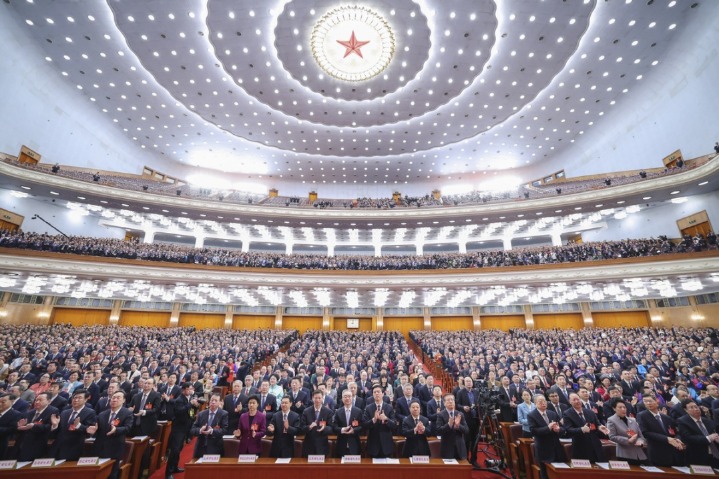Prison system

The Prison Law of the People's Republic of China took effect on Dec 20, 1994, after adoption at the 11th meeting of the 8th National People's Congress Standing Committee.
It provides for the State Council’s judiciary administrators, the Ministry of Justice, to supervise all prisons through its Prison Administration Bureau. In the provinces, municipalities, and autonomous regions, the justice offices are responsible for administering the prisons under their jurisdiction.
China has two types of prison – for people with fixed-term or long-term sentences and those for juvenile delinquents or minors. In the first, male and female inmates are kept in separate wards, with the female inmates supervised by female law enforcement personnel.
There are also wards for felons and those accused of misdemeanors. The second category contains those who are serving a fixed-term or life sentence or face the death penalty with two years reprieve. There is special protection for juvenile delinquents with procedures to attend to their needs.
Prison setup and staff
The Prison Law gives State Council judicial administrators the final say on the establishment, relocation, or closing down of prisons in line with historical, economic and natural factors. It provides for the reasonable distribution of prisons and effective and accurate execution of penalties. Prisons normally have one warden, several deputy wardens, administrative and commercial office, and sanitary and education facilities. The Prison Law states that managerial personnel of prisons are members of the police force with the same status as public security police.
Financial system
The Prison Law states that the central government procures funding for prisons and prison reform as part of its budget to cover the cost of policing prisons, prisoner reform, inmates’ daily lives, maintenance of facilities, and other items. The State provides facilities and the funding for prison labor, with land and mineral and other resources used by prisons, and the property of prisons protected by law. No entity or individual can trespass on or damage their property.
Principles
Article 3 of the Prison Law states that prisons are to follow a principle of penalties with reform, and education with labor, to turn prisoners into law-abiding citizens, in the following ways:
1. Reform through punishment. The purpose of punishment in prison is that it is difficult for criminals to come to grips with what they have done and begin a new life without it. And, while punishment focuses on enforcement, reform focuses on change. Punishment is the means, and change is the result. Punishment is intended to transform criminals into law-abiding citizens, which is the precise reason for criminal penalties. Prisons are not intended to punish for punishment's sake.
2. Education with labor. For more effective reform of prisoners, education needs to be combined with labor and it can be ideological, cultural, vocational and technical.




